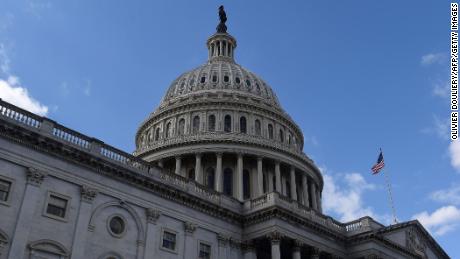What’s next with the Covid relief bill
On Monday evening, the House will vote on the terms for the bill’s consideration, House Majority Leader Steny Hoyer said in a statement, and the chamber will vote to approve the changes made in the Senate the following day.
But after a long negotiation Friday evening — and with a flurry of other amendments to consider — Manchin finally agreed to extend $300 weekly unemployment benefits through September 6, about a month earlier than what Democrats had envisioned. The West Virginia Democrat also limited a provision to make the first $10,200 in benefits nontaxable apply only to households making less than $150,000.
Biden hailed the Senate passage in remarks from the White House Saturday afternoon, touting his plan’s widespread public support even if it didn’t earn any Republican votes. “By passing this plan, we’ll have proved that this government, this democracy, can still work. It has to be done. It will improve people’s lives,” the President said.
A two-page memo, drafted by White House senior adviser Anita Dunn and National Economic Council Director Brian Deese and obtained by CNN, makes clear that between the implementation of the bill’s sweeping provisions and Biden’s ambitious agenda ahead, the President has no plans of resting on any laurels.
“There’s still much more to be done, and absolutely no room for complacency,” the officials wrote in the memo. “We’re racing to finalize passage of this bill, and the President looks forward to signing this into law. And then the real work will begin.”
![]()



